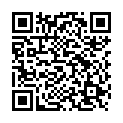|
|
|
| Module code: DFIM-315 |
|
|
4VU (4 hours per week) |
|
4 |
| Semester: 3 |
| Mandatory course: no |
Language of instruction:
Spanish |
Assessment:
Written exam (50%) + presentation (25%) + tests (25%)
[updated 08.01.2024]
|
DFBEES-313 (P610-0624) Electrical Engineering - Renewable Energy and System Technology, Bachelor, ASPO 01.10.2019
, optional course
DFBME-306 (P610-0334, P610-0631) Mechanical Engineering, Bachelor, ASPO 01.10.2019
, mandatory course
DFBME-306 (P610-0334, P610-0631) Mechanical Engineering, Bachelor, ASPO 01.10.2024
, semester 3, optional course
DFITM-315 (P620-0634) International Tourism Management, Bachelor, ASPO 01.10.2020
, semester 3, optional course
DFIW-306 (P610-0626) Computer Science and Web Engineering, Bachelor, ASPO 01.10.2019
, semester 3, optional course
DFILM-308 (P620-0632) International Logistics Management, Bachelor, ASPO 01.10.2022
, semester 3, optional course
DFIM-315 (P620-0630) German-French and International Management, Bachelor, ASPO 01.10.2019
, semester 3, optional course
|
60 class hours (= 45 clock hours) over a 15-week period.
The total student study time is 120 hours (equivalent to 4 ECTS credits).
There are therefore 75 hours available for class preparation and follow-up work and exam preparation.
|
Recommended prerequisites (modules):
None.
|
Recommended as prerequisite for:
|
Module coordinator:
Dr. Julia Frisch |
Lecturer:
Dozierende des Studiengangs
[updated 28.04.2025]
|
Learning outcomes:
The initial level is A2.
After successfully completing this module, students will:
be able to understand simple and clear standard language in written and spoken form
be able to talk about familiar topics from their studies, work and leisure time
be able to express themselves simply and coherently on familiar topics and personal areas of interest
be able to outline the goals of their studies and describe their professional and technical plans for the future
be able to talk about current affairs
[updated 08.01.2024]
|
Module content:
Repetition and consolidation of past tenses and their use (perfecto/indefinido)
Introduction of future tenses (futuro proximo + futuro simple)
Introduction of the subjunctive
Speaking and writing about professional and private future plans, wishes and experiences
Speaking and writing about simple news, political and social issues
Describing simple graphics and diagrams
Culture, geography and history of Spanish-speaking countries
[updated 08.01.2024]
|
Teaching methods/Media:
The learning content is developed in a communicative and action-oriented manner with targeted listening, reading and speaking exercises in individual, partner and group work. A subject-related presentation on the course content is obligatory.
Short written or oral progress tests are a component of the course.
[updated 08.01.2024]
|
Recommended or required reading:
Multimedia-supported teaching and learning material to intensify teaching will be provided in the course and via Moodle.
[updated 08.01.2024]
|

